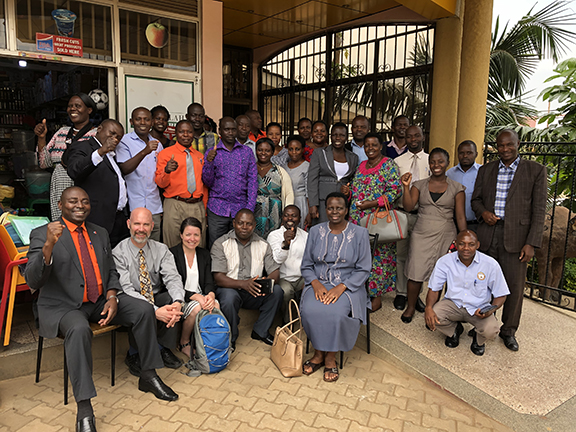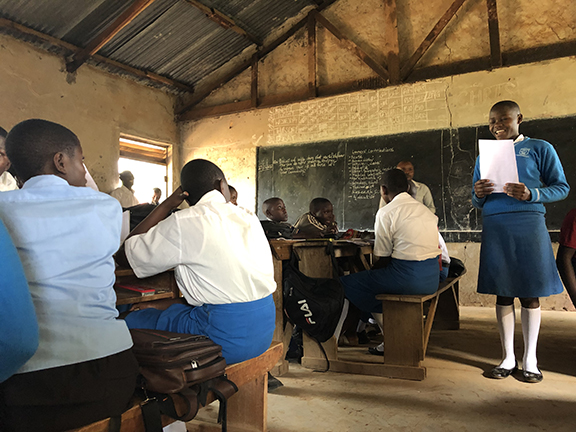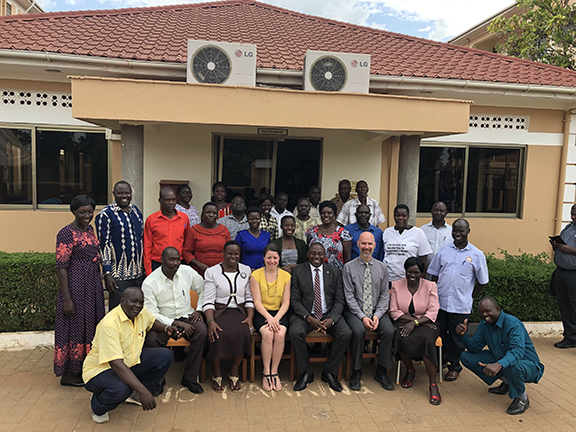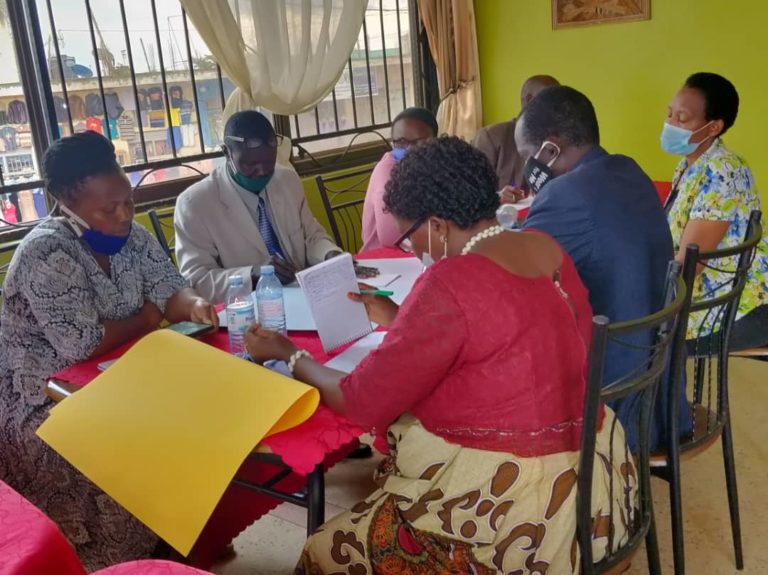
The Canadian Teachers’ Federation (CTF/FCE) has been an active participant in Spur Change’s capacity building training sessions from the very beginning of the program. As CTF/FCE Program Officer Sandy Plamondon explains, “I started with the International and Social Justice Program at the CTF/FCE on October 1st, 2019 and attended the Spur Change National Conference in November, so I was introduced to the program pretty quickly.”
Many Canadians will recognize the CTF/FCE as the umbrella organization for teacher unions across Canada. Since 1962, it has also worked internationally to develop the skills of educators, strengthen the capacity of teacher organizations and foster gender equality and the empowerment of girls and women. As a member of Education International (EI), the CTF/FCE contributes to the achievement of the United Nations’ Sustainable Development Goals (SDGs) through development cooperation work. Striving particularly towards SDG #4 (Quality Education) and SDG #5 (Gender Equality), they continue to engage teachers, both in Canada and abroad, to achieve quality education for all.
It was this part of the CTF/FCE’s mandate that led to the application for the GAC Development Impact Window fund in 2017. To strengthen the application, CTF/FCE Director Dan Martin connected with his counterparts at the Ugandan National Teachers’ Union (UNATU), a longstanding partner of CTF’s in International Development work.

The project they developed, entitled Simameni – Stand Together for Girls’ Secondary Education in Uganda, built on prior successful collaborations between the CTF/FCE and UNATU in the creation and strengthening of a national network of gender responsive primary schools in Uganda. The project application was accepted and in the Fall of 2019 work began immediately. Sandy Plamondon was hired to manage the 5-year project that aims to improve access, retention, and educational opportunities for secondary school-aged girls in the Teso and the Western regions of Uganda. The project opened new opportunities for Sandy.
“It was really a dream come true. Before joining the CTF/FCE, I was a teacher and a consultant with some international development work in Africa, Latin America and in the Caribbean, but I was eager to continue learning and developing my knowledge to ensure the project’s success.”

The aim of the Simameni project is two-fold:
- To address some of the socio-cultural barriers that hinder access to and retention of girls at the secondary school level by working with individuals and communities to inform, to influence social norms and to show the advantages of girls’ education for the girls themselves, their families, their communities, and the Ugandan society in general, and;
- To improve the provision of gender-responsive education in the 24 selected secondary schools to make them safer, more welcoming, and considerate of girls’ needs.
In early 2020, before COVID-19 derailed all their plans, Sandy had a chance to travel to Uganda to meet with her counterparts and visit a school in the Teso region of the country.
“We launched the project in February and then everything kind of stopped because the pandemic forced us to stop, schools were closed and the activities we had planned for May and June had to be cancelled.”
While reworking plans for the project, Sandy continued to be engaged with Spur and in May, she participated in the Risk Analysis and Contingency Plans training sessions.
“The Risk Management course was very powerful. It opened our eyes and made us review and improve our own Risk Management policy within the CTF/FCE.”
This 3-module course, prepared by Spur Change in collaboration with Aléas, aims to better equip Canadian SMOs in the international cooperation and development sector with risk management and contingency plan development. Course participants learn about risk management, how to perform a risk analysis, how to determine mitigation strategies and how to implement crisis management practices including protocols, standard operating procedures and contingency plans.
“After this workshop, Dan and I worked on reviewing and updating our policy on health, safety and security at the CTF/FCE. We also asked our partners to put one together for their organizations.”

“During the workshop, Aléas provided examples of Standard Operating Procedures (SOPs) to follow when possible emergencies arise. For example, the steps volunteers should follow in the case of an earthquake. These examples were the inspiration for the creation of our own SOPs.”
With some of this policy groundwork laid, Sandy and her team were able to move forward in 2020 with some activities, in particular, working to improve conditions in schools and influencing gender norms in the society. Radio ads encouraged parents to send their girls back to school once the pandemic allows. Head teachers in Uganda expressed satisfaction with the Simameni project, and everyone including Sandy, are hoping to resume planned in-school activities for the 2021-2022 school year.
For Sandy, Spur has not only provided relevant capacity building training, but it opened her to more – a community of like-minded practitioners. She connected with other SMOs working in international development to network, problem solve and support one another in project planning.
‘’I would say that the workshops and the networking opportunities resulting from the Spur Change workshops really helped.”
